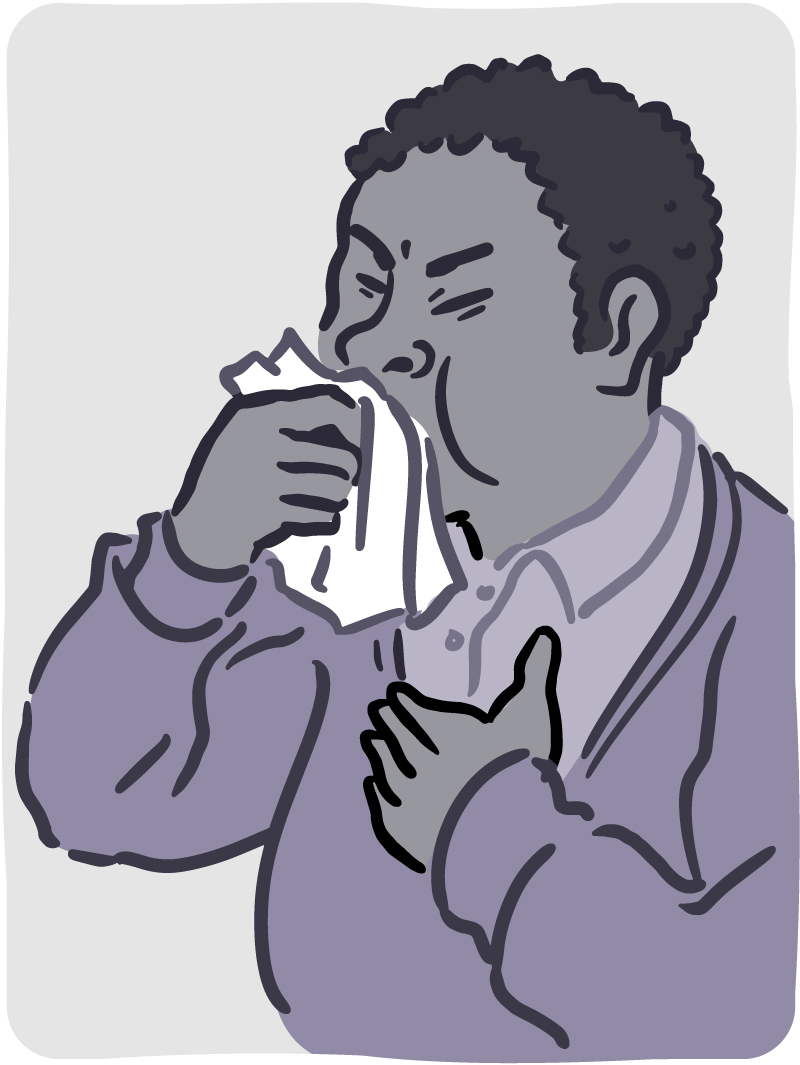Cough Culprits
What’s the Difference Between Bronchitis and Pneumonia?

Coughs help your body clear your airways of irritants and prevent infection. But a deep cough from your chest may signal bronchitis or pneumonia. Although they may have different underlying causes, their symptoms can be similar—and both can be serious enough to send you to the doctor.
Bronchitis and pneumonia both involve Swelling and irritation caused by the body’s protective response to injury. Inflammation in the chest. Both can cause coughs that bring up a slimy substance called phlegm to help clear out germs and pus. And both can cause shortness of breath and wheezing.
Bronchitis is a condition in which the bronchial tubes that lead to the lungs become inflamed. Viruses, bacteria, and even toxins like tobacco smoke can inflame the bronchial tubes. Most of the time, though, bronchitis is caused by an infection with one of several types of viruses. If you develop bronchitis during flu season, a likely culprit may be the flu virus. Cold viruses are also common causes at this and other times of year.
Pneumonia is caused by an infection of the lungs. “About 1/3 of cases are caused by viruses, but most of them are bacterial related,” says Dr. Kenneth Olivier, a lung infection expert at NIH. “They’re from bacteria that are quite common, like Streptococcus pneumoniae, which is the leading cause of bacterial pneumonias in all ages in the U.S.”
If you get a fever with bronchitis, it is usually mild (below 101 degrees Fahrenheit). In more serious cases, you may have chest pain, feel short of breath, or wheeze when you breathe in.
“Pneumonia, on the other hand, typically is associated with fever, sometimes very high, spiking fever,” Olivier says. Breathing problems, chest pain, and other symptoms also tend to be more severe with pneumonia.
If you have a fever and chills, trouble breathing, or a cough that is bringing up thick phlegm—especially if it’s yellow or green—go see your doctor.
Your doctor can listen to your lungs by placing a stethoscope on your chest. “Frequently, the physician can hear areas where the breath sounds are altered,” Olivier says. If you have pneumonia, your doctor may hear bubbling, crackling, or rumbling sounds from the lungs.
You may be sent for a chest X-ray, which can show whether the lungs contain fluid or pus from an infection. An X-ray is the best way to diagnose pneumonia and rule out bronchitis.
Whichever illness you have, resting and drinking plenty of fluids are important ways to care for yourself.
If you’re diagnosed with bronchitis, your doctor probably won’t give you antibiotics. Because viruses are the usual cause of bronchitis, antibiotics are seldom helpful. If you’re wheezing, however, you may be given medicine to open your airways. Your cough may last 10 to 20 days.
Because bacteria are often the cause of pneumonia, your doctor may prescribe antibiotics. It can take 1 to 4 weeks to recover from pneumonia. Some people require treatment in the hospital.
Germs that cause colds, the flu, and lower airway infections are contagious. The best way to prevent getting bronchitis or pneumonia is to avoid getting these infections. And when you’re sick, take care not to spread your germs to others (see “Wise Choices” box for tips).
NIH Office of Communications and Public Liaison
Health and Science Publications Branch
Building 31, Room 5B52
Bethesda, MD 20892-2094
Contact Us:
nihnewsinhealth@od.nih.gov
Phone: 301-451-8224
Share Our Materials: Reprint our articles and illustrations in your own publication. Our material is not copyrighted. Please acknowledge NIH News in Health as the source and send us a copy.
For more consumer health news and information, visit health.nih.gov.
For wellness toolkits, visit www.nih.gov/wellnesstoolkits.




